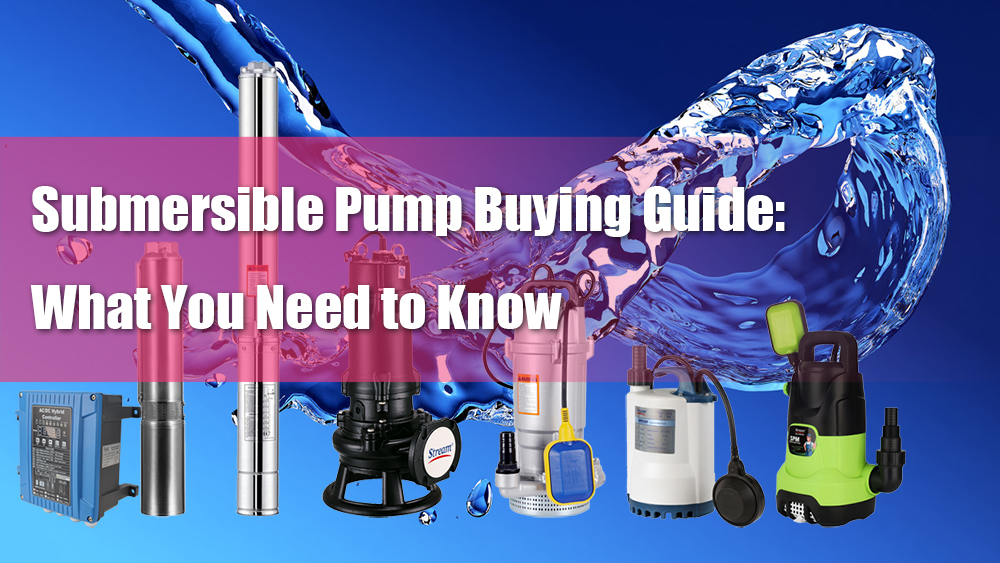+86 13816508465
Dec. 17, 2024

Choosing the right submersible pump is crucial for ensuring efficiency and durability in various applications, from irrigation to sewage management. With so many options on the market, it can be overwhelming to decide which pump best suits your needs. This guide will walk you through the essential factors to consider when buying a submersible pump.
Different applications require specific types of submersible pumps:
· Grinder Pumps: Designed to handle solid waste and dirty water in wastewater systems.
· Well Pumps: Used to extract clean water from underground wells.
· Sewage Pumps: Ideal for draining water from basements or shallow flooding areas.
· Utility Pumps: Versatile pumps used for general dewatering tasks.
· Irrigation Pumps: Used for agricultural and landscaping water supply.
Knowing your application ensures you choose the right pump type and specifications.
· Flow Rate: Measured in gallons per minute (GPM) or liters per second (L/min), this indicates how much water the pump can move.
· Head Height: Refers to the maximum height the pump can lift water, crucial for applications involving vertical pumping.
Choose a pump with sufficient capacity to meet your needs without overloading the system.
The material affects the pump’s durability and compatibility with different liquids:
· Stainless Steel: Ideal for corrosive environments.
· Cast Iron: Durable and suitable for heavy-duty applications.
· Plastic or Polypropylene: Lightweight and corrosion-resistant but less durable.
For abrasive or corrosive fluids, opt for high-quality, resistant materials.
· Electric Pumps: Common for household and industrial use; require a stable power supply.
· Diesel or Gasoline Pumps: Suitable for remote locations without electricity.
· Solar Pumps: Eco-friendly and cost-effective for agricultural applications.
The motor's power rating should align with the pump’s capacity and intended use.

Energy-efficient pumps reduce operating costs and environmental impact. Look for:
· High-Efficiency Motors
· Pumps with energy-saving certifications or ratings.
· Impeller Design: Determines the pump's ability to handle solids and prevent clogs.
· Seal Type: Mechanical seals are more durable and prevent leaks effectively.
· Cord Length: Long cords provide flexibility in installation.
Some submersible pumps can be noisy. If you're installing it in a residential or noise-sensitive area, choose a pump designed for quieter operation.
Opt for pumps with:
Minimal maintenance requirements.
Comprehensive warranties to cover defects and repairs.
Consider the upfront cost, but also factor in energy consumption, maintenance, and potential repair expenses.
Investing in a high-quality pump may save money in the long run.
Buy from a Trusted Supplier
Purchasing from a reputable supplier ensures you receive genuine, high-quality products with reliable support. Check reviews, certifications, and customer service options before making your purchase.
Selecting the right submersible pump requires careful evaluation of your specific needs, budget, and the pump's features. By understanding these factors, you can choose a pump that delivers optimal performance and longevity.
Address
No.17 XeDa Jimei Ind. Park, Xiqing Economic Development Area, Tianjin, China
Telephone
+86 13816508465
QUICK LINKS